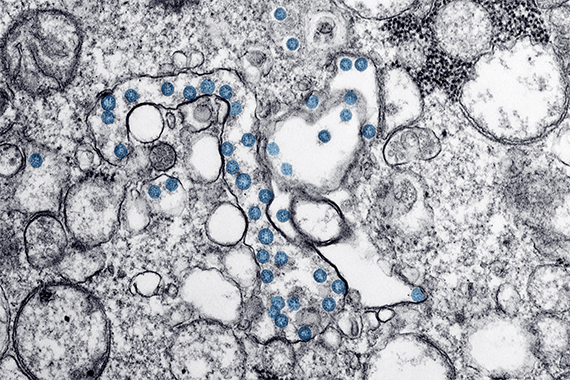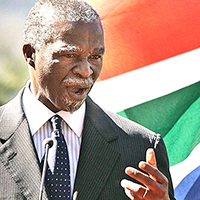 A transition electron microsopic image of an isolate from the first case of Covid-19 in the United States. (Image by CDC)
A transition electron microsopic image of an isolate from the first case of Covid-19 in the United States. (Image by CDC)
Crisis Management
Purdue, Krannert respond to coronavirus pandemic
The global outbreak of COVID-19 continues to warrant the attention of each of us at Purdue as we work together to keep our students, staff, and faculty safe and healthy while continuing our educational mission in a rapidly changing environment.
Likewise, the Krannert School is offering its expertise in crisis management to its industry partners and the national media, including challenges such as shocks to the supply chain, work-from-home arrangements, business closures, the impact of the economic stimulus package recently passed by Congress, and skyrocketing unemployment rates.
Safe Learning
Following guidance from the Centers for Disease Control and Prevention, the Indiana State Department of Health, and our own public health safety experts, Purdue implemented a number of actions intended to slow the spread of the virus and protect the health of our community.
These include moving all courses online or to an alternative delivery platform; suspending all university events, travel and study abroad; adhering to social distancing and hygiene guidelines; and encouraging students to return home through the end of the semester rather than remaining in university housing.
“These are extraordinary days at the Krannert School, Purdue University and the world at large,” says David Hummels, the Dr. Samuel R. Allen Dean of the Krannert School. “Instead of thousands of students returning from Spring Break, we faced empty streets, offices and classrooms. COVID-19 forced us to rethink the way we finished the semester and how we worked as an organization. All classes at Purdue have been taught online for the remainder of the semester, and most of our faculty and staff have been remotely working in keeping with guidance on social distancing.
“In these difficult times there is good news. The Krannert School began preparing for such a circumstance in January when we read the initial news of university shutdowns in Asia. Thanks to extensive planning by our staff leadership and our online and IT teams, we were ready to flip all of our courses online with just a few days’ notice. Rather than resisting needed change, faculty and support staff sprang into action to learn new tools and pedagogy, solve problems and collaborate on best practices.
“It is hard to express in words how proud I am of the Krannert community, how fast and how well we adapted to this new reality. I am confident that our students have continued to receive top-flight instruction.”
Emily D'Alessandro, a Krannert junior and president of the School of Management Council, shares that pride as she completes the spring semester from her home in New Jersey. She says Krannert faculty are keeping students engaged in learning on a variety of levels.
“My professors have sent me personal emails to make sure all my questions have been answered, so I’m grateful for their attention to detail and my own concerns,” she says. “In one of my courses we had to take a quiz on a platform that was difficult to use with the necessary equations, and after getting in contact with the professor, we were given more time to complete it.”
“My classes have utilized blog and discussion boards to continue conversations that we would otherwise be having in class, which allows us to stay connected as well as make sure we have a strong understanding of the topic at hand,” D'Alessandro says. “The increased use of group chats with my projects has also helped me stay on the same page with my teammates.”
Cara Putnam, a business law lecturer and award-winning teacher in the Krannert School, urges students to follow D'Alessandro’s lead. “Reach out to your professors, email us with questions and check in during virtual office hours,” Putnam says. “We are here for you.”
Next: How businesses can remain resilient amid coronavirus disruption







